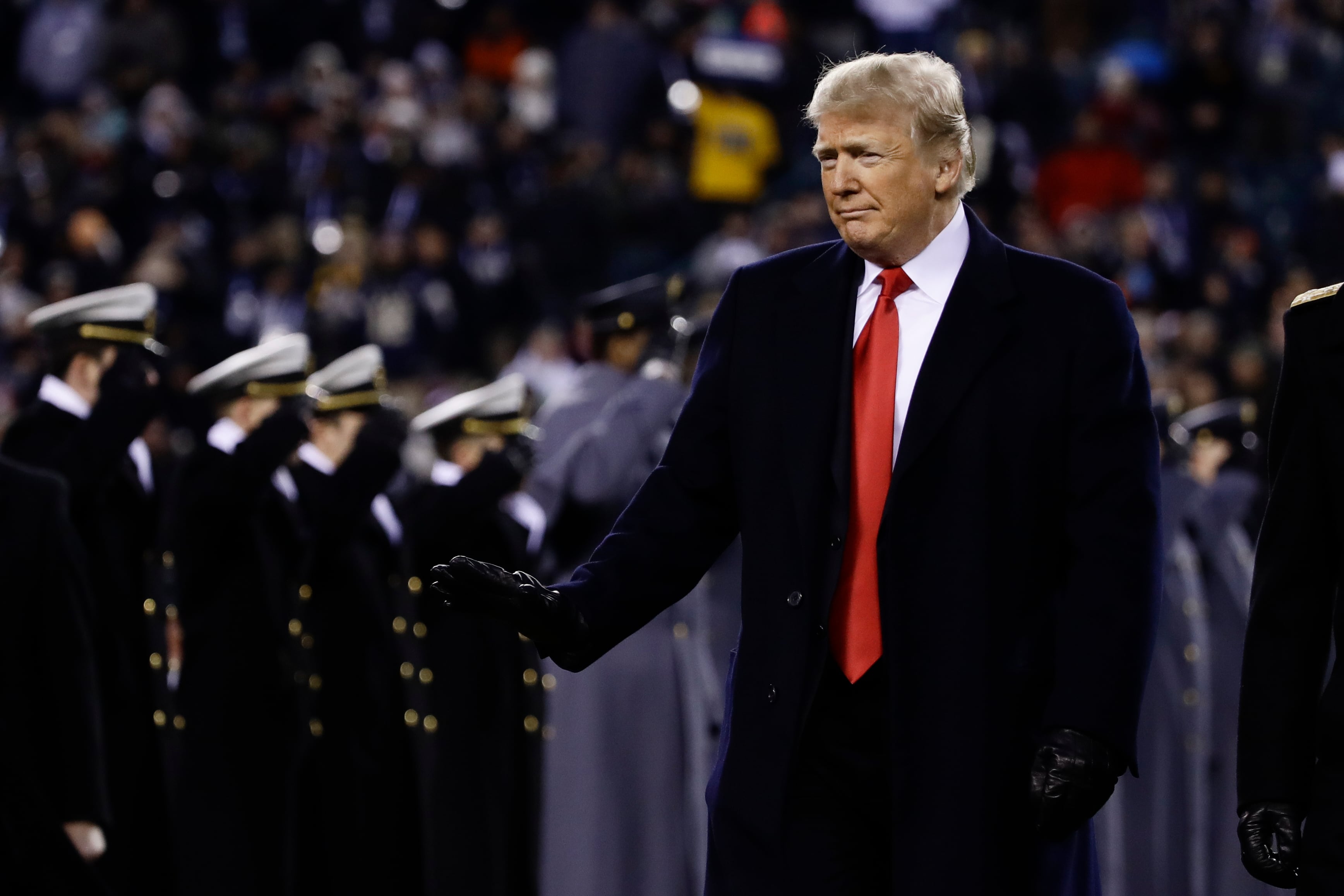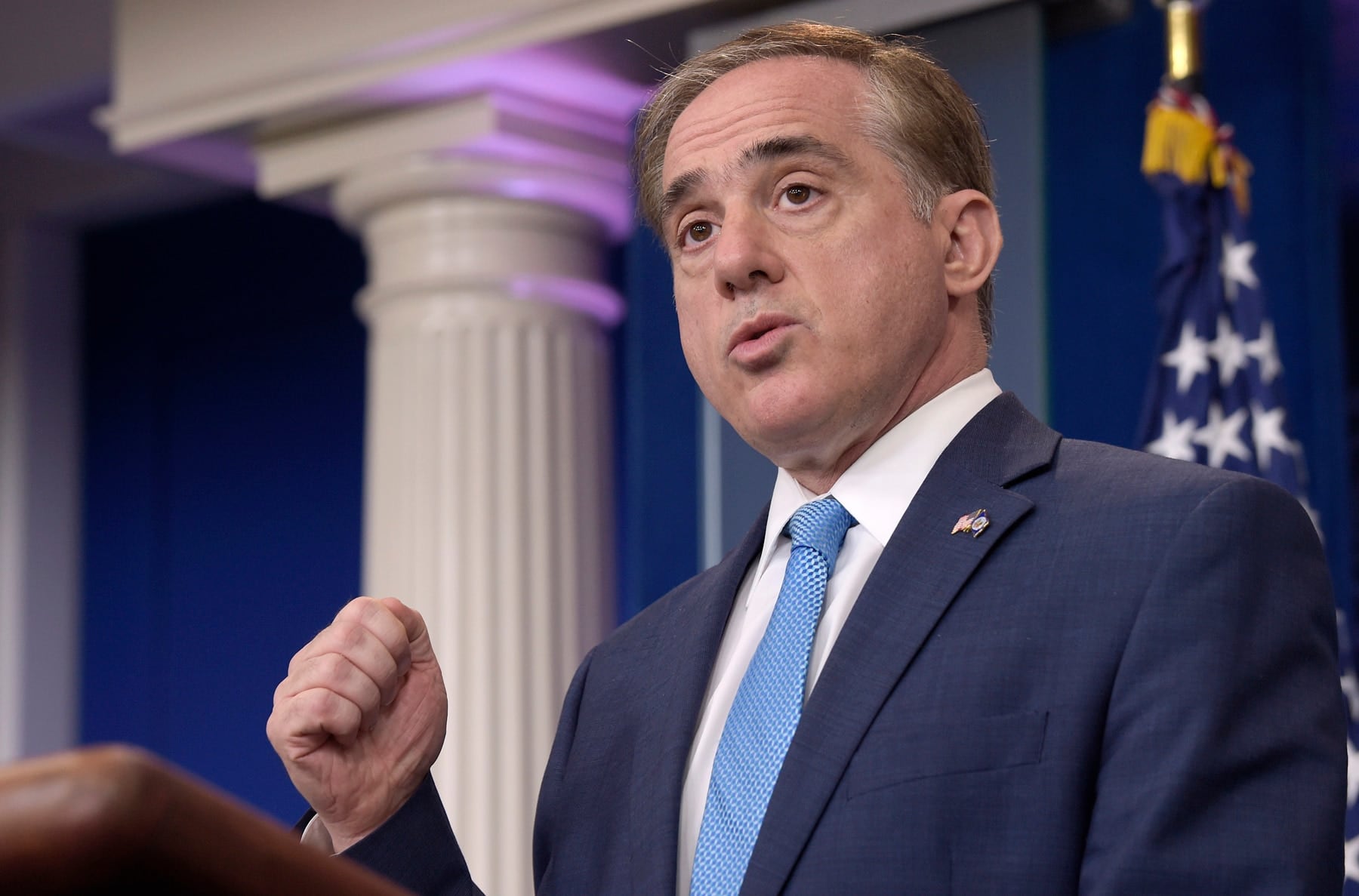WASHINGTON — Analysts from the Congressional Budget Office say the government could trim hundreds of billions from the federal deficit by enacting a host of already discussed military and veterans program reforms.
The problem is that those reforms include some of the most controversial and politically unpopular policies of the last few years, things like limiting military pay raises, ending a host of military equipment purchases, and cutting back on veterans benefits.
The document released last week — CBO’s annual “options for reducing the deficit” report — lists more than 120 ideas to reduce federal spending or boost federal revenues over the next 10 years. Authors said the goal is to “reflect a range of possibilities” of moves that lawmakers could make in dealing with government debt and escalating federal programming costs.
RELATED

Twenty of the proposals would affect the departments of Defense and Veterans Affairs, including a plan to cut the Pentagon budget by 10 percent ($591 billion in reduced budget authority over the next decade). That dramatic cut would “require DOD to decrease the size of its forces, slow the rate at which it modernizes weapon systems, or do both,” which in turn would prompt a host of complaints from military leaders and defense lawmakers.
Still, the size of the savings involved show why the ideas continue to attract debate on Capitol Hill each year, even with the significant disruptions they may bring.
Here is a look at some of the other potential VA and Pentagon moves:
Limit pay raises for troops ($18 billion in savings over 10 years)
The CBO idea would give troops an annual raise of 0.5 percent less than the expected growth in civilian salaries. Service members would still see annual raises, but opponents of the idea argue that those increases wouldn’t keep up with the cost of living for military families.
President Barack Obama’s Pentagon capped the military raises at this level for three years during his presidency, leading to criticism from advocates that he had created a new gap in military and civilian wages. President Donald Trump suggested a 0.3 percent reduction in the expected raise formula in his first budget, but saw the proposal rejected by Congress.
Narrow eligibility for VA disability benefits ($33 billion over 10 years)
The CBO plan would drop a host of conditions not directly related to military service — illnesses like arteriosclerotic heart disease, hemorrhoids and multiple sclerosis — from the list of claims eligible for disability benefits. More than 750,000 veterans' checks would be affected by the move.
Any such trims in benefits have prompted harsh attacks from veterans groups, who have accused supporters of breaking faith with men and women who were promised lifelong assistance for their military service.
Cancel new F-35 purchases ($16 billion over 10 years), retire the F-22 fleet ($30 billion over 10 years) and delay development of the B-21 bomber until after 2028 ($45 billion over 10 years)
All three ideas would require Air Force officials to continue using aging aircraft, a concern for Pentagon planners who have seen a spike in aviation accidents in recent years.
The CBO report acknowledged that a disadvantage of the idea would be making the military “less flexible against advanced enemy air defense systems” but said the current mix of aircraft types already in use by the services would mitigate some of those concerns.
Stop building Ford-class aircraft carriers ($18 billion over 10 years)
Under this option, the Navy would stop building new aircraft carriers after the USS Enterprise, scheduled to be completed in 2027. A carrier set for the start of construction in 2023 would be scrapped.
The CBO report argues that even with the move, the Navy would still have 11 active carriers until 2036 given its current fleet size. However, defense lawmakers have long argued against any delays in ship building schedules, given the long wait for construction and fielding of new vessels.
End VA’s Individual Unemployability program for retirement-age veterans ($48 billion over 10 years)
Trump also suggested this idea in his first VA budget, only to have lawmakers and veterans groups soundly reject it.
The IU program provides extra benefits to veterans unable to work because of disabilities, even if they don’t have a 100 percent disabled rating. Supporters have argued that money should stop once Social Security payouts begin. Opponents of the idea could leave as many as 235,000 veterans in dire financial need.
RELATED

Reduce military housing allowances to 80 percent of rent costs ($15 billion over 10 years)
Under this plan, BAH payments wouldn’t change for troops until they move, but it would slowly increase their out-of-pocket costs for housing. The change would also create savings for the VA, since post-9/11 GI Bill housing stipends are tied to the military housing formula.
Similar BAH reform proposals on Capitol Hill have met fierce opposition in recent years. Advocates argue that since military members have little say in their next duty assignment, they shouldn’t have to shoulder the costs of unexpected moves and expensive housing costs.
Replace thousands of troops with civilian workers ($17 billion over 10 years)
The CBO idea calls for reducing military end strength by 80,000 over four years and replacing them with 64,000 civilian employees. The work would not be directly related to warfighting, and the health care and ancillary costs of non-military workers would create significant savings compared to service members’ benefits.
But Congress has worked to increase the military’s end strength in recent years, saying it brings more readiness and flexibility to the overall force. An end-strength cut of that size would represent a major political backtrack for many elected officials.
Leo covers Congress, Veterans Affairs and the White House for Military Times. He has covered Washington, D.C. since 2004, focusing on military personnel and veterans policies. His work has earned numerous honors, including a 2009 Polk award, a 2010 National Headliner Award, the IAVA Leadership in Journalism award and the VFW News Media award.





